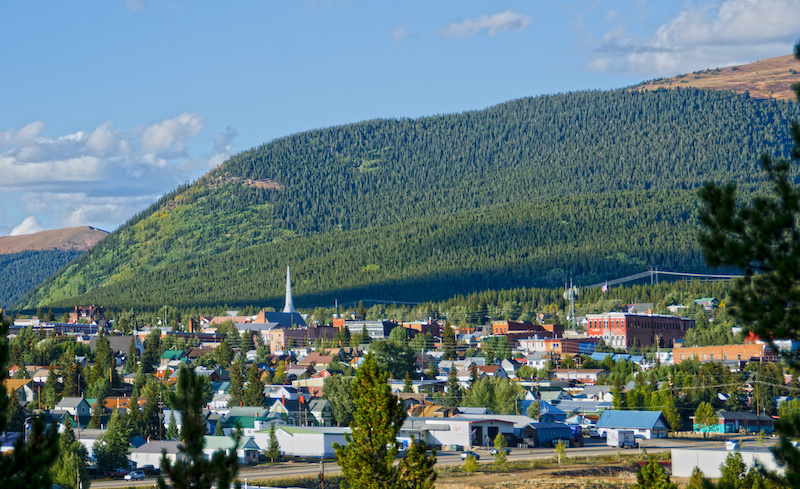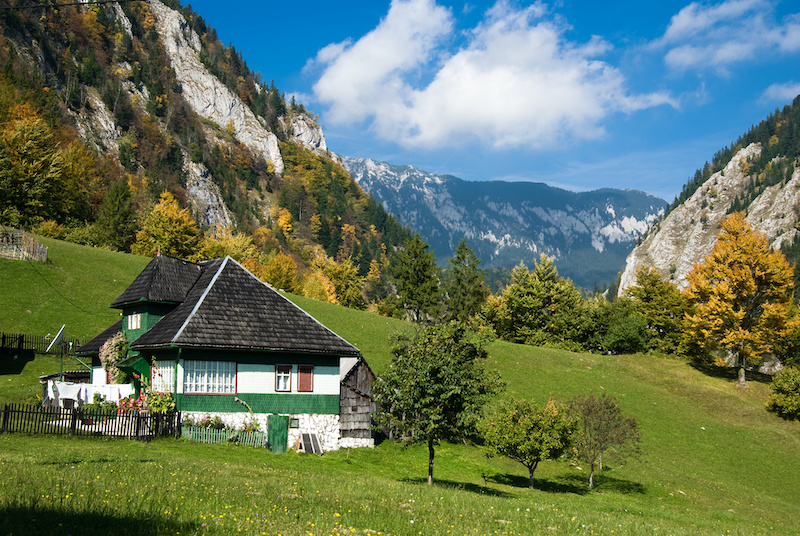The Benefits of High-Altitude Living
The benefits of high altitude living include much more than fresh air.
Jan 03, 2023
Here at Vital Choice, we're big fans of sea level. After all, that's where you find the seafood.
(Actually, the seafood is by definition below sea level, but those who harvest it are usually just a few feet above it.)
But here's an interesting health fact: Year after year, one fact about American health never changes.
The healthiest Americans live in Colorado.

They are longest-lived, with the lowest incidence of serious disease.
And year after year, as the press covers this fact, they explain that this is because Coloradans lead active lifestyles – hiking, skiing, biking.
But while Coloradans are indeed active, there is no evidence that they spend any more time in active pursuits than residents of other wilderness-intensive states such as Oregon, Washington, and Alaska.
The best science points to a different reason. Colorado is high.
We'll skip the obvious first-state-to-legalize-cannabis jokes here…
…and point out that on average, Colorado has the highest physical elevation of any U.S. state. Average altitude: 6,800 feet.
A study in the International Journal of Obesity found that Americans who live in counties above 5,000 feet in elevation are five times less likely to be obese than those in counties under 1,600 feet. And that's after adjusting for other factors including age, diet, smoking, local temperature, etc.
Further, the higher you go, the greater the health benefit. This “dose-response" relationship is a hallmark of real biological action.
One study examining 9,800 Army and Air Force personnel (mostly male, all overweight but not obese) tracked their weights over six years after they were assigned to bases at various altitudes.
Those who were stationed above 6,400 feet, such as in Colorado Springs, Colorado or Cheyenne, Wyoming were 40 percent less likely to become obese than those stationed below 3,200 feet.
The study controlled for initial weight, race, age, and certain other factors.

Similarly, the relatively lofty Appalachians constitute a “low obesity island" in the U.S. South, surrounded by the “sea of obesity" that is the rest of the low-lying Southern states.
As it turns out, along with being thinner, research suggests people worldwide who live at high altitudes have a lower incidence of both cancer and heart disease than folks who live closer to sea level.
Note that these studies were done decades ago. We've known the health advantages of high altitude for a long time.
Now, we are starting to understand the mechanisms.
Lofty...and Stressful?
Why are those living the high life thinner, healthier and longer-lived? No one knows for certain, but hormesis is a likely explanation.
Hormesis is the term used to describe stresses that, when confined within certain limits, cause an organism to become stronger, longer-lived and generally more robust – the better to withstand that stress in the future. Note that most of these health-promoting aspects of high-altitude living are mildly stressful:
- Hypoxia – a mild lack of oxygen – improves health by first activating a “stress sensor" called PGC-1α. This is a protein that binds to a specific receptor in our cells. PGC-1α regulates mitochondrial biosynthesis. In other words, it's what allows your cells to make more or fewer mitochondria, the minuscule “power plants" responsible for human energy. It also stimulates hormones in the brain, muscles and fatty tissue. These in turn have beneficial effects such as changing body composition from an abundance of inflammatory “white fat" to metabolically active “brown fat."
- Altered leptin signaling. There's evidence that high altitude makes levels of leptin, the hormone that signals fullness, rise. Higher leptin means less hunger, less eating, and lower weight. As a study noted, “lowlanders traveling to various elevations above 2,650 (meters, roughly 8,700 feet) experience acute anorexia, decreased caloric intake and weight loss."
- Increased sympathetic tone. The sympathetic nervous system is known as the “fight or flight" system, while the parasympathetic nervous system is known as “rest and digest." Life at altitude significantly boosts serum levels of norepinephrine, the neurochemical associated with emergency and alarm. This may sound like bad news, but human biopsychology is complex. There's no clear evidence that those who live a high altitude feel abnormally physically or psychologically stressed as a result of their elevated norepinephrine levels. Possibly, the elevated sympathetic tone boosts calorie-burning metabolism but circumvents brain circuitry that registers alarm.
All very interesting, but does that help those of us who live in the lowlands?
Yes, possibly. Even visiting high altitudes may confer benefits that last once has returned to lower areas. Consider – a research project sent volunteers to a camp near the summit of Bolivia's 17,785-foot Mount Chacaltaya, once the site of the world's highest ski resort. After two weeks, the volunteers had acclimated.

They then left the mountain for two weeks, went back up, and showed the same level of endurance that they had at the end of their first stay. In other words, their bodies seemed to retain the high-altitude conditioning they had gotten before.
So… can you put this knowledge to use?
I recognize that picking up and moving to a higher altitude location is unrealistic for many, but perhaps not for everyone reading these words.
Life is becoming more mobile by the year. Options are more fluid than those of previous generations.
So I would suggest that – all other things being equal – you might give some consideration to moving to a higher altitude.
Another possibility? Again, all else being equal, spend at least part of your life as far above sea level as you find comfortable.
After all, given that Vital Choice ships all over, you needn't be a lowlander to get your delicious seafood!











